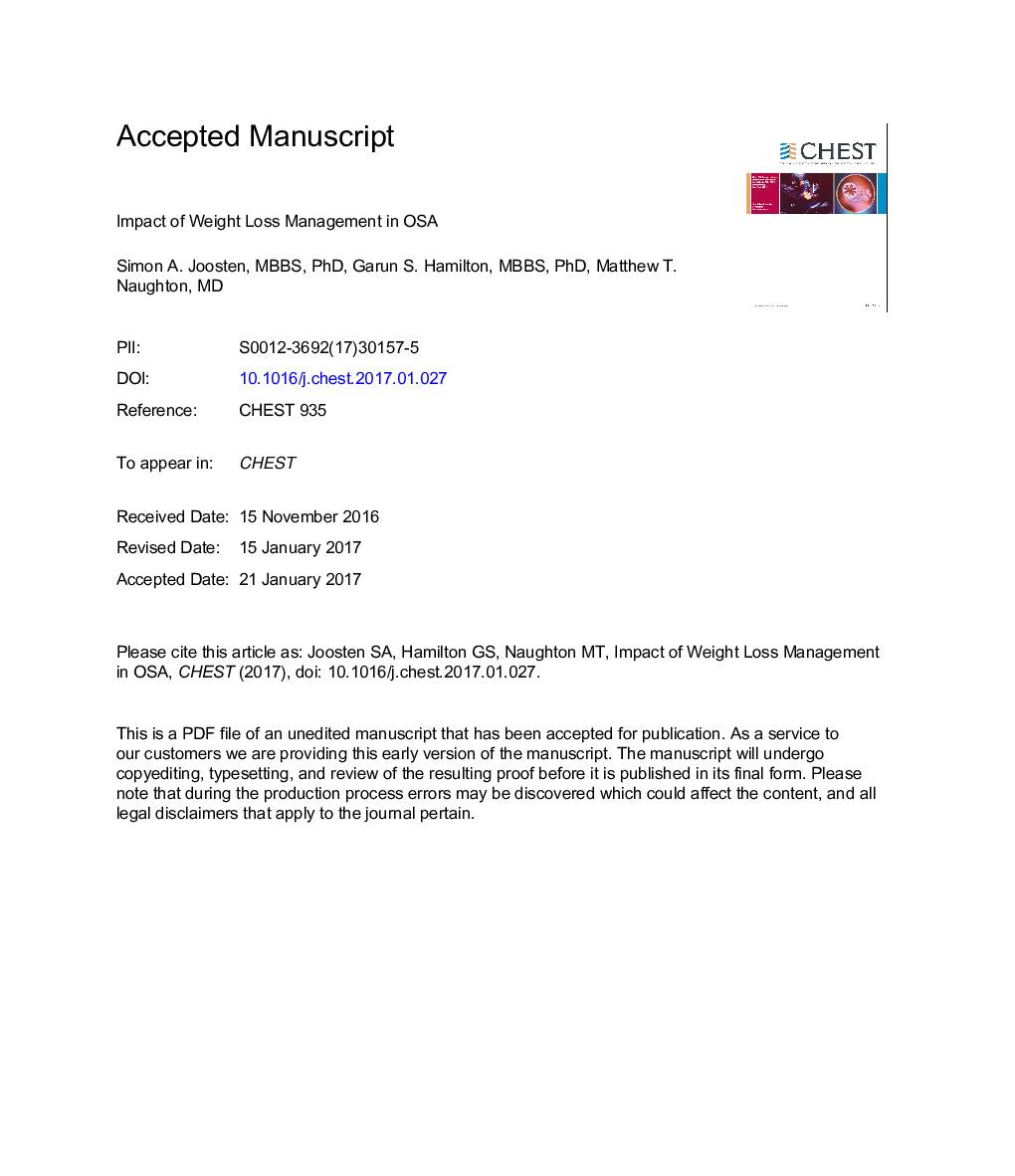| Article ID | Journal | Published Year | Pages | File Type |
|---|---|---|---|---|
| 5600519 | Chest | 2017 | 29 Pages |
Abstract
The interaction between obesity and OSA is complex. Although it is often assumed that obesity is the major cause of OSA, and that treatment of the OSA might mitigate further weight gain, new evidence is emerging that suggests this may not be the case. Obesity explains about 60% of the variance of the apnea-hypopnea index (AHI) definition of OSA, mainly in those < 50 years and less so in the elderly. Moreover, long-term treatment of OSA with CPAP is associated with a small but significant weight gain. This weight gain effect may result from abolition of the increased work of breathing associated with OSA. Unfortunately, weight loss by either medical or surgical techniques, which often cures type 2 diabetes, has a beneficial effect on sleep apnea in only a minority of patients. A short jaw length may be predictive of a better outcome. The slight fall in the overall AHI with weight loss, however, may be associated with a larger drop in the nonsupine AHI, thus converting some patients from nonpositional to positional (ie, supine only) OSA. Importantly, patients undergoing surgical weight loss need close monitoring to prevent complications. Finally, in patients with moderate to severe obesity-related OSA, the combination of weight loss with CPAP appears more beneficial than either treatment in isolation.
Keywords
Related Topics
Health Sciences
Medicine and Dentistry
Cardiology and Cardiovascular Medicine
Authors
Simon A. MBBS, PhD, Garun S. MBBS, PhD, Matthew T. MD,
